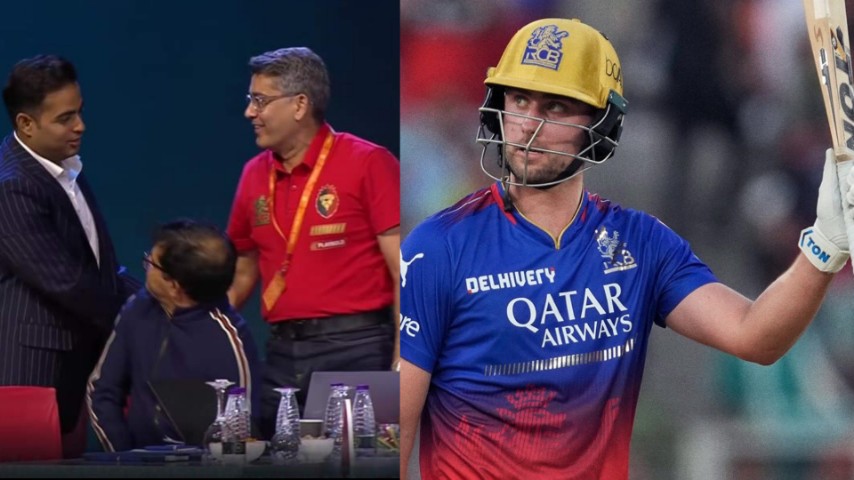- Wed, March 16, 2022

Loading

Loading

The Allegations of Auction Collusion
The Indian Premier League (IPL) 2025 mega auction has ignited a wave of controversy following the transfer of England all-rounder Will Jacks to Mumbai Indians (MI) and Australian big-hitter Tim David to Royal Challengers Bangalore (RCB). Social media has been abuzz with allegations suggesting collusion between the two franchises.
The heart of the matter lies in Will Jacks’ sale to MI for ₹5.25 crore and Tim David’s acquisition by RCB for ₹3 crore. Both players swapped franchises, raising questions among fans and analysts. Speculation intensified when MI owner Akash Ambani was seen approaching the RCB camp for a handshake after the Jacks deal, a gesture some interpreted as a signal of a pre-arranged pact.
Jacks is set to join #MI as #RCB opts not to use the RTM option!
— JioCinema (@JioCinema) November 25, 2024
Keep watching the #IPLAuction LIVE on #JioCinema & #StarSports ????????https://t.co/nuBiKyfyEh#TATAIPL #IPLAuctiononJioStar #JioCinemaSports pic.twitter.com/ImhrAVBZki
Auction Dynamics Under the Lens
The IPL auction is a sophisticated process where franchises navigate team-building through budget management, player assessment, and tactical foresight. The pattern of transfers between MI and RCB has prompted many to question whether these moves were part of a coordinated effort.
RCB's decision to buy Tim David, previously a standout player for MI, appears to address their need for a strong finisher in the middle order. Tim David’s T20 credentials, particularly his ability to anchor innings and finish matches under pressure, fit seamlessly into RCB’s vision for their 2025 squad.
Meanwhile, MI’s acquisition of Will Jacks underscores their ambition to deepen their batting reserves and add an off-spinning option to their arsenal. The English all-rounder’s versatility makes him a strategic addition to the Mumbai lineup, especially considering their reliance on dynamic, multi-role players.
Right-to-Match (RTM) Cards in Focus
Fueling the controversy was RCB's decision not to use their Right-to-Match (RTM) card for Will Jacks. The RTM rule permits a franchise to retain a player by matching the highest bid. RCB’s move to let Jacks go surprised some fans, given his promising performance in T20 leagues globally.
This choice, however, may reflect a calculated shift in priorities. With budgetary constraints and the evolving team dynamics in mind, RCB may have opted to focus their resources elsewhere, particularly on securing players like Tim David who align more closely with their strategic goals.
Examining the Evidence
Despite the uproar, there is no concrete evidence to substantiate the claims of auction fixing. The handshake between Akash Ambani and the RCB camp has been blown out of proportion, with critics offering no tangible proof of collusion. IPL auctions often feature cordial exchanges and strategic discussions between franchise representatives, making such gestures commonplace rather than conspiratorial.
Moreover, auction decisions are influenced by real-time scenarios, budget ceilings, and player demands. Franchises juggle these elements to craft balanced squads, often making unexpected moves in the heat of the bidding process.
Conclusion: Speculation vs. Reality
While the MI-RCB player swaps and their post-auction interactions have stirred rumors, the claims of auction fixing remain unproven. Both franchises appear to have made independent, tactical decisions that align with their team-building philosophies.
In the absence of verified evidence, these allegations should be treated as speculative at best. The intricacies of the IPL auction warrant a nuanced perspective, focusing on strategic intent rather than conspiracy theories. As fans and analysts continue to debate, the onus remains on preserving the spirit of fair play that underpins the IPL’s global appeal.
Comments:
Leave a Reply